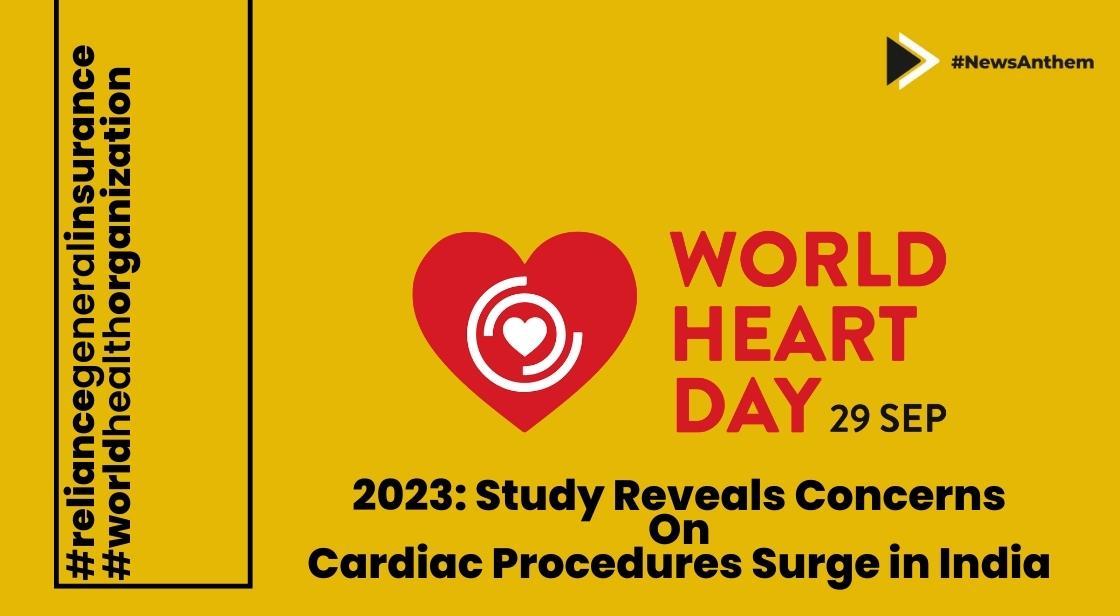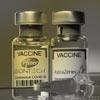World Heart Day 2023 : Study Reveals Concerns on Cardiac Procedures Surge in India

News Synopsis
In observance of "World Heart Day," Reliance General Insurance conducted a comprehensive survey shedding light on the escalating trends of cardiac procedures in India.
The study focused primarily on Coronary Angiography (CAG) procedures, crucial in diagnosing and managing coronary artery disease.
To commemorate World Heart Day, Reliance General Insurance delved into the realm of cardiac health, emphasizing the alarming rise in Coronary Angiography procedures in India.
Focus on Coronary Angiography:
The survey meticulously analyzed CAG procedures within the age groups of 19-35 and 36-45, spanning the period from 2018 to 2023, revealing intriguing insights into the impact of cardiac health.
Stark Increase Post-Covid Era:
Data from the survey highlighted a substantial increase in the volume of CAG procedures within both age brackets post the Covid-19 pandemic. In the 19-35 age group, CAG procedures surged by a remarkable 160.87% from 2018-2019 to 2022-2023. Similarly, in the 36-45 age category, there was a notable increase of 102.99% during the same period.
Gender Disparities in Cardiac Procedures:
The survey uncovered a gender imbalance in the utilization of CAG procedures. Males were more likely to undergo these procedures than females in both age groups. In the 19-35 bracket, males constituted 73.91% of total CAG procedures in 2018-2019, increasing to 78.33% in 2022-2023. In the 36-45 category, males accounted for 67.16% in 2018-2019, rising to 81.62% in 2022-2023.
Alignment with WHO Report:
Reliance General Insurance's survey aligns with the recent World Health Organization (WHO) report titled "Invisible Numbers: The True Scope of Noncommunicable Diseases and How to Address Them." The report underscores the global impact of cardiovascular diseases, remaining the leading cause of global mortality.
Cardiovascular Diseases in India:
The RGI survey reaffirms India's struggle with cardiovascular ailments, particularly coronary artery disease, mirroring the WHO report's emphasis on the worldwide prevalence of cardiovascular diseases.
Social and Economic Implications:
The rise in Coronary Angiogram procedures among the youthful and productive demographic holds implications for India's social and economic development, as highlighted in the survey.
Risk Factors and Preventive Measures:
Factors such as stress, lifestyle choices, dietary habits, smoking, and genetic predisposition contribute to the surge in cardiac issues. The survey advocates for adopting healthy behaviors, including regular exercise, a balanced diet, smoking cessation, and effective stress management.
Call for Action:
Both the Reliance General Insurance RGI survey and the WHO report stress the imperative need for heightened awareness and preventive measures against coronary artery disease. They call for increased investment and collaborative efforts from the government, healthcare sector, civil society, and the private sector to address this burgeoning public health challenge.
Some relevant and latest facts for the news article
-
The number of cardiac procedures in India is expected to increase by 20% by 2030.
-
Coronary artery disease is the most common type of heart disease in India, accounting for over 50% of all heart disease deaths.
-
The risk factors for coronary artery disease include unhealthy diet, smoking, physical inactivity, high blood pressure, high cholesterol, and diabetes.
-
Cardiovascular diseases are a major cause of premature death in India, with an average of 2.5 million Indians dying from heart disease each year.
-
The economic burden of cardiovascular diseases in India is estimated to be over ₹2 trillion annually.
The RGI survey findings are a wake-up call for India to take urgent action to address the rising burden of cardiac diseases among younger and middle-aged adults.
This can be done through a combination of measures, including:
-
Raising awareness about the risk factors for heart disease and promoting healthy lifestyle choices.
-
Strengthening primary healthcare services to detect and manage cardiovascular risk factors early.
-
Making affordable and accessible healthcare services available to all.
-
Investing in research and development to develop new and innovative prevention and treatment strategies.
By taking these steps, India can reduce the number of cardiac procedures and deaths among its younger and middle-aged population, and improve the health and well-being of its citizens.
You May Like









